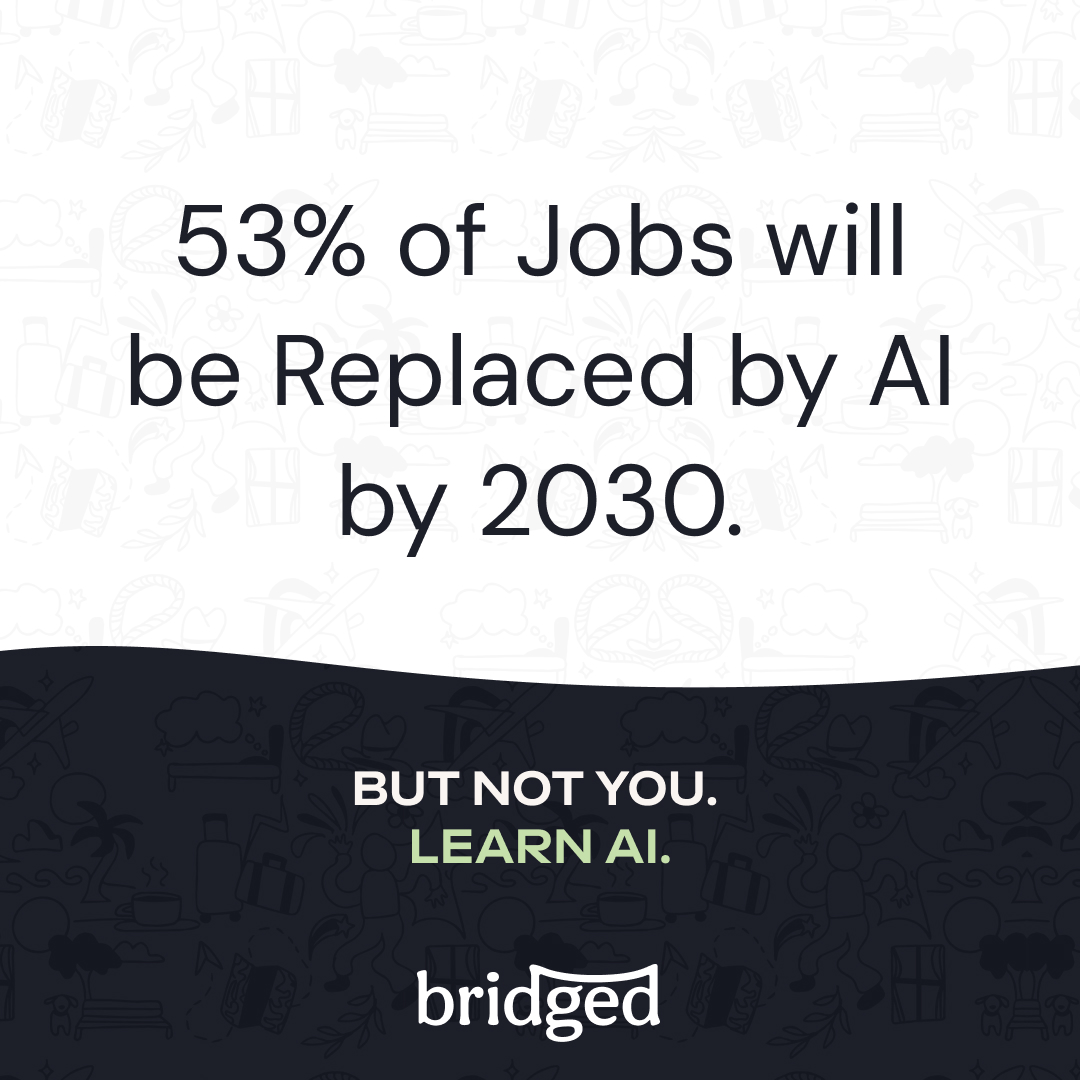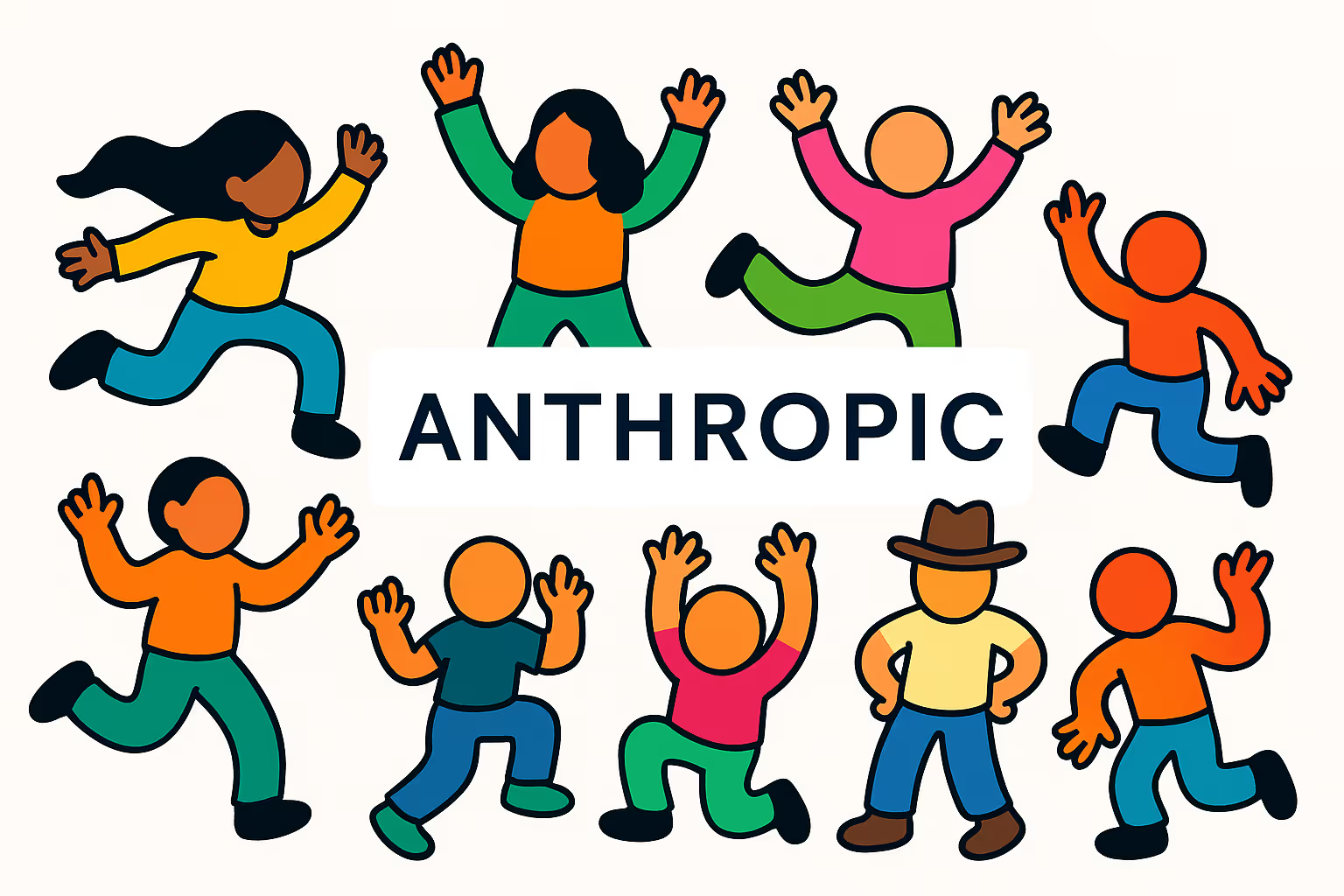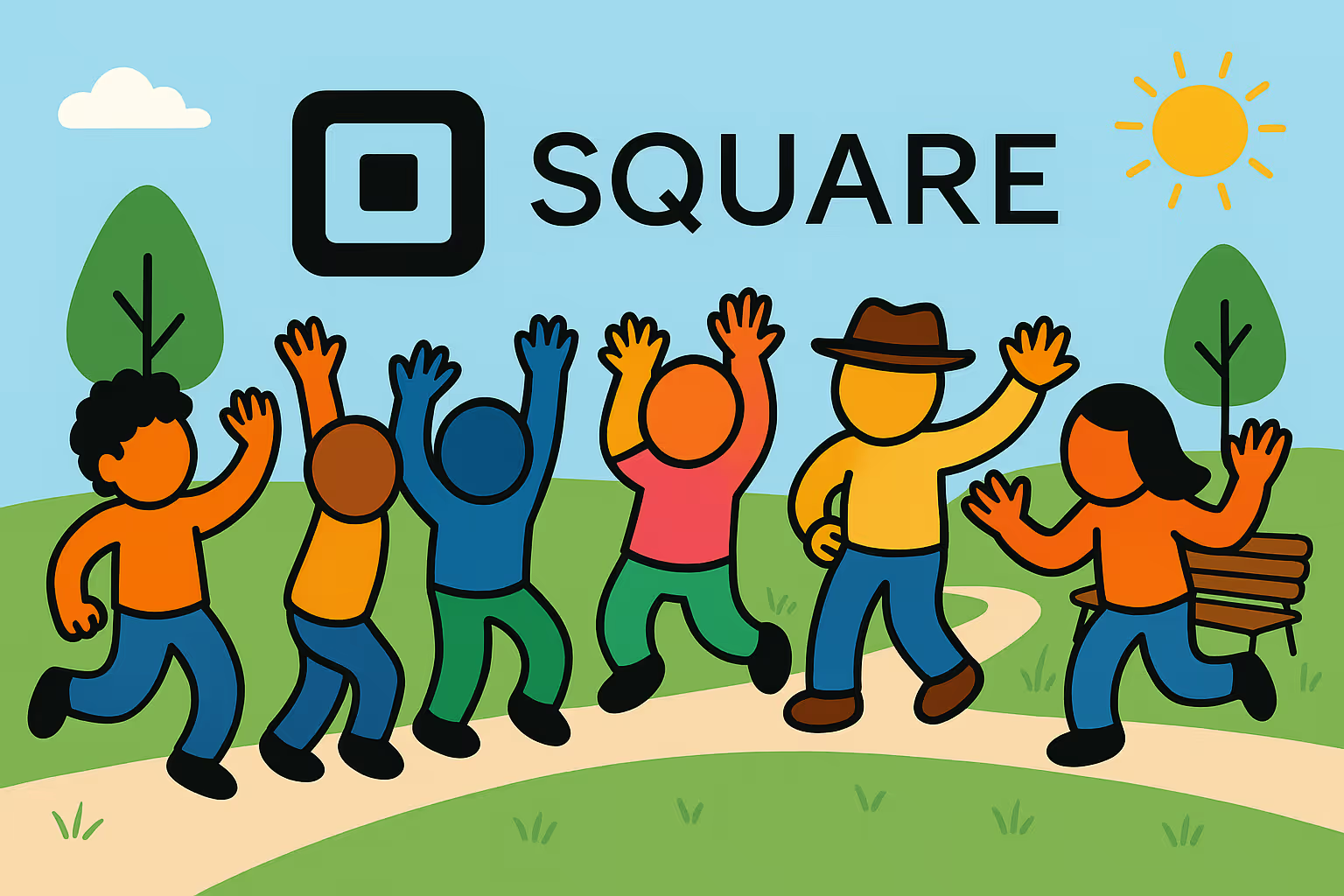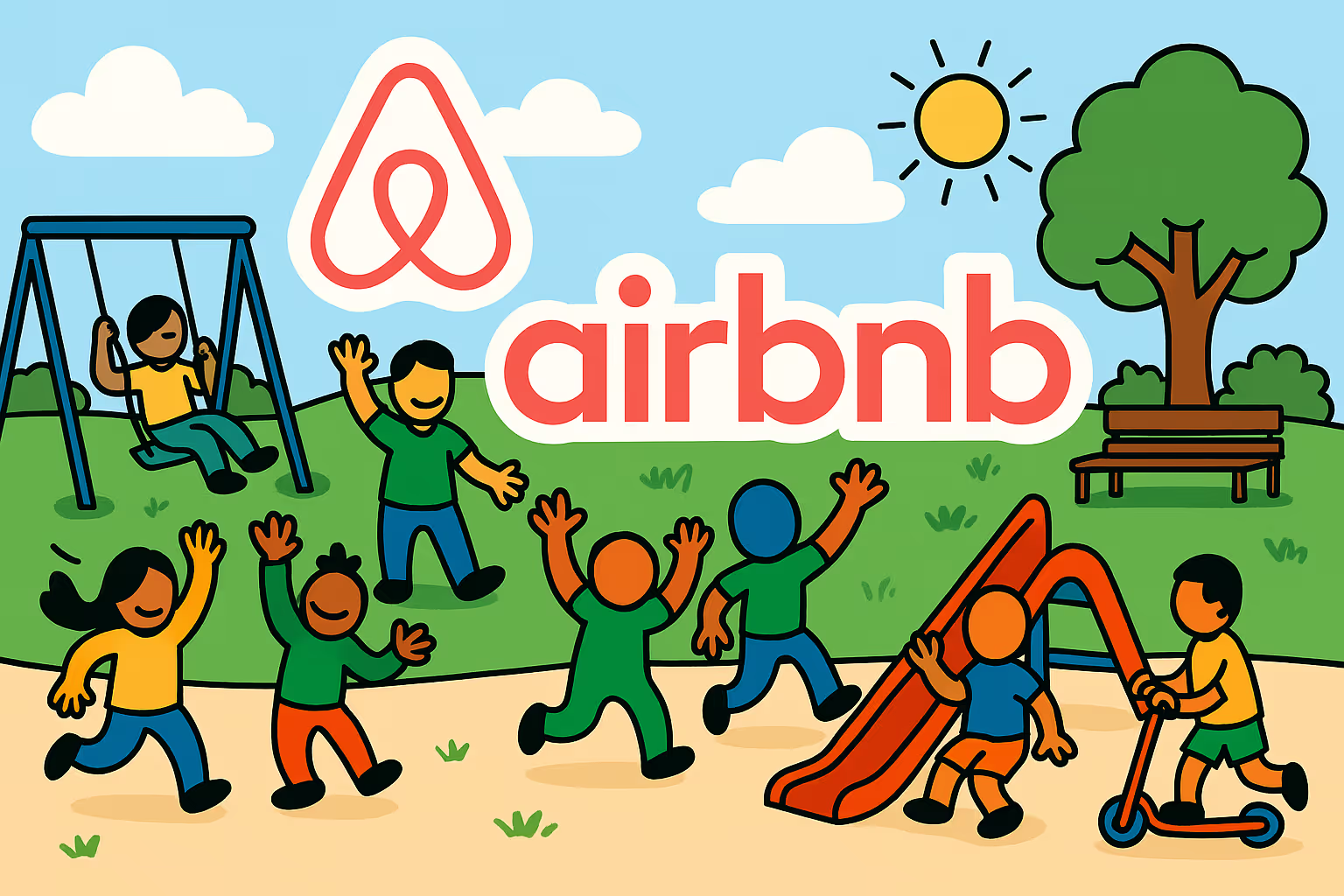How to Get a Job at Anthropic
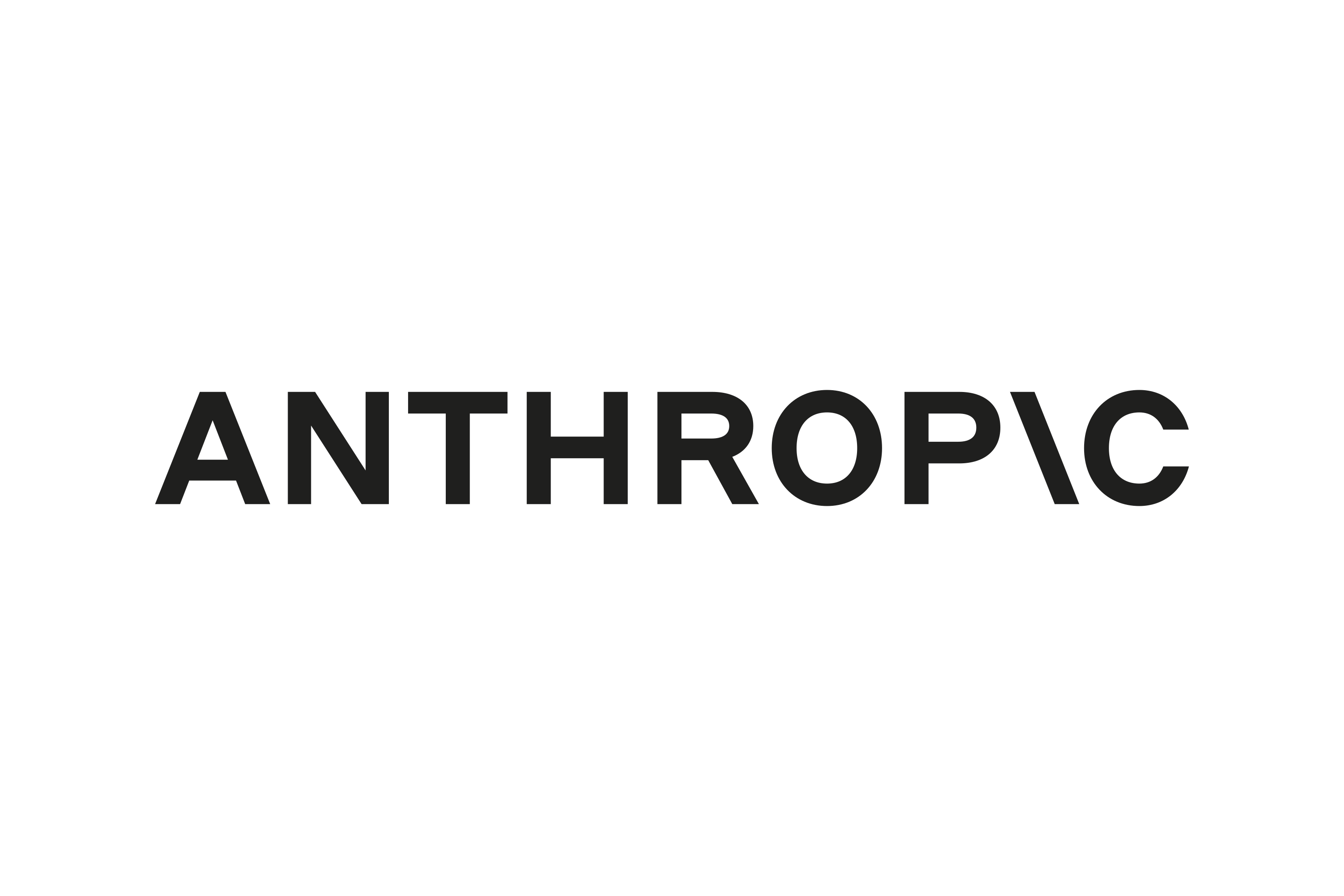
Founded: 2021
Headquarters: San Francisco, CA
Remote Work: YES!
Benefit Rating: TBD (8?)/10
Entry Level Jobs: It's Complicated.
Anthropic Overview
Anthropic Details & History
Anthropic PBC was founded in 2021 by former OpenAI researchers, including Dario and Daniela Amodei and others such as Jared Kaplan and Jack Clark, who wanted to build AI models focused on alignment and safety rather than rapid growth. Incorporated as a public-benefit corporation, it operates under a Long‑Term Benefit Trust structure to ensure decisions consider broad societal impact over profit. The company gained major funding, including $8B from Amazon and $2B from Google, underscoring its influence and growth trajectory in the AI space.
Anthropic Office Locations
Anthropic is headquartered in San Francisco, California, but maintains a remote-first culture, where most roles allow distributed work across the U.S., UK, and Canada. Employees are expected to spend about 25% of their time in office to maintain collaboration and connection, though that can be flexible depending on the role and team location.
Anthropic Primary Competitors
Anthropic’s key competitors include OpenAI (developer of ChatGPT) and Google DeepMind (Gemini), all racing to build next-generation large language models. Anthropic stands out through its strict emphasis on AI safety, constitutional AI frameworks, and pre-release interpretability research. This safety-focused mission—combined with strong talent retention and top-tier compensation—makes it a magnet for elite AI engineers.
Top AI Assistants & Answer Engine Competitors
- ChatGPT (OpenAI) – especially with browsing tools
- Gemini (Google DeepMind) – especially in Google Workspace
- Arc Search (from The Browser Company)
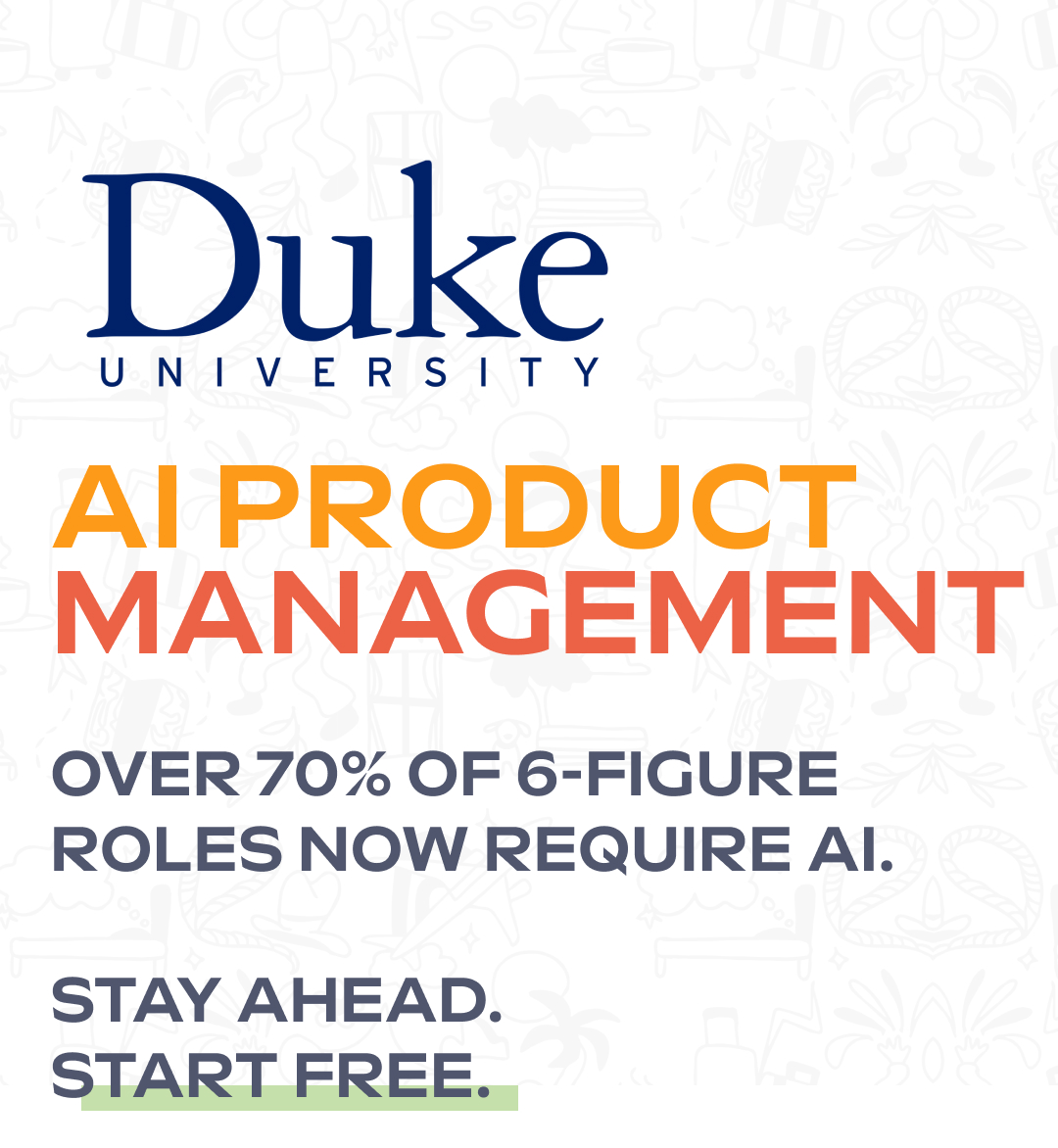
Anthropic AI Hiring Details
Top Anthropic Departments for Entry-Level Roles
Unlike big tech companies that hire large numbers of new grads, Anthropic is a small, elite AI safety startup with a highly selective hiring process. Most roles are mid-to-senior level, often requiring a background in machine learning, large language models (LLMs), or AI safety research. However, there are limited pathways for early-career candidates who have strong technical skills or mission-aligned expertise.
Potential early-career openings typically fall into these areas:
- ML Research Engineering: Supporting Claude model development, running experiments, evaluating model behaviors, and working on fine-tuning and safety guardrails. Candidates often have PhDs, research experience, or competitive ML/AI internships.
- Interpretability & Infrastructure: Building tools and systems to analyze model behavior, uncover latent representations, and improve transparency of large-scale models. This is highly technical and usually requires prior research experience in AI interpretability or theoretical ML.
- Product Analyst or Technical Product Roles: Helping product teams test, evaluate, and deliver Claude’s capabilities to customers, often bridging the gap between technical findings and product decisions. These roles sometimes welcome candidates with strong data skills and experience in AI products.
- Policy & Alignment Research Support: Assisting with projects related to AI governance, safety frameworks, or Constitutional AI evaluation. Occasionally, individuals with backgrounds in philosophy, law, or policy (plus technical familiarity) can enter here.
That said, truly entry-level or new graduate roles are rare at Anthropic due to its size, stage, and research-first focus. The company prioritizes small, high-impact teams of experienced experts over large-scale hiring programs. Early-career candidates often enter via AI Safety Fellowships, research internships, or prior work in adjacent labs or open-source AI contributions. Those interested in Anthropic long-term may benefit from first gaining experience at a larger AI lab, tech company, or academic research group before applying.
Diversity at Anthropic
Though explicit demographic data isn't public, Anthropic emphasizes mission-driven hiring that values diverse perspectives and inclusive collaboration. Reviews describe a "high-trust, low-politics" environment where transparency is fostered and employees feel empowered to voice concerns directly to leadership. This helps maintain a culture aligned with its public-benefit mission as the company rapidly scales.
Is remote work allowed at Anthropic?
Anthropic supports a remote-first structure—employees work primarily remotely and are expected to visit the office roughly 25% of the time if local. Remote employees report that the distributed culture is strongly supported—virtual collaboration tools, inclusive meetings, and regular interactive events help preserve connection and engagement.
Is it hard to get a job with Anthropic?
In short: yes—getting hired at Anthropic is extremely difficult, even for highly qualified candidates. The company is a small, elite AI safety research lab competing with OpenAI, Google DeepMind, and Meta for top-tier talent. Anthropic’s hiring bar is set deliberately high because its work sits at the forefront of frontier AI development, where mistakes could have global consequences. Every hire is expected to meaningfully advance their mission of building safe, interpretable AI systems.
Candidates frequently report a rigorous, multi-stage interview process that tests both technical depth and mission alignment. Technical interviews go far beyond standard software engineering questions—they often include challenges in machine learning theory, systems design, model interpretability, alignment trade-offs, and real-world AI safety scenarios. You may be asked to reason about hypothetical risks of large language models or propose methods for improving model reliability under uncertainty. Reddit users describe it as "one of the hardest interview processes in tech," with some likening it to “Hell Week for Navy SEALs”—long, high-pressure sessions where only those with deep expertise and conviction in Anthropic’s mission make it through.
Even beyond technical skills, Anthropic evaluates cultural and values alignment heavily. Candidates are expected to demonstrate an understanding of AI safety principles, a willingness to prioritize long-term societal benefit over speed or profit, and the ability to collaborate effectively in a low-ego, high-impact environment. This means that even top engineers from FAANG companies sometimes don’t pass the bar if their mindset doesn’t match Anthropic’s mission-first approach.
Bottom line: Anthropic isn’t just looking for smart engineers—they’re hiring world-class experts who live and breathe AI safety, can thrive in a research-intensive startup, and are ready to shoulder the responsibility of shaping frontier AI. If you’re interested in working here, expect one of the toughest interview processes in the industry, and prepare months in advance with both technical study and a deep understanding of Anthropic’s alignment philosophy.
Does Anthropic have good benefits?
Reports indicate Anthropic offers market-leading benefits tailored to both financial and personal well-being: comprehensive health/dental/vision insurance, fertility coverage, 22 weeks parental leave, flexible PTO, and stipends for wellness and professional development up to ~$15K annually (Source: Anthropic themselves). Compensation packages are high—engineer salaries in the $300K–$400K base range, equity matching, and conservative compensation leveling to preserve fairness.
How is work-life balance at Anthropic?
Employees rate work-life balance 3.6 out of 5—the lowest among company ratings on Blind, though compensation and culture score very high (source: Blind) Reddit discussions reinforce that long hours are common; some report working 60+ hours during peak periods or deployments, while others say a 45–50‑hour week is typical. That said, several reviewers note the intense environment is tempered by mission alignment, support infrastructure, and strong purpose-driven motivation.
Anthropic Interview Process
Who is Anthropic looking to hire?
Anthropic primarily hires AI/ML researchers, alignment engineers, interpretability experts, software engineers, infrastructure specialists, and policy researchers. These roles typically require deep expertise in large language models, safety research, or distributed computing at scale, often gained through prior experience at leading AI labs, top-tier tech companies, or advanced academic programs (PhD or equivalent research experience).
While Anthropic has some roles adjacent to research—such as product developers or technical program managers—the company overwhelmingly seeks candidates who can directly advance the state of safe AI. This includes designing novel safety frameworks (like Constitutional AI), building interpretability tools to understand model behavior, and developing infrastructure to evaluate and steer AI systems responsibly.
Unlike larger tech firms that can accommodate broader ranges of skill levels, Anthropic hires only a handful of people per role and expects them to make outsized contributions quickly. Passion for AI safety is non-negotiable—the company openly states that every employee is expected to put the mission above personal agenda or prestige. Candidates who lack a track record in safety research, open-source AI contributions, or strong academic grounding often find it difficult to stand out. As a result, landing a role at Anthropic is considered one of the hardest feats in the AI industry, requiring not just technical brilliance, but a clear dedication to solving alignment challenges that most organizations have yet to tackle.
Anthropic Values (from their careers page)
Anthropic’s stated values include:
- Acting for long-term human good
- Igniting a race to the top on safety
- Being helpful, honest, and harmless
- Holding light and shade (balancing risks & benefits)
- Doing the simple thing that works
- Putting mission above titles or hierarchy
These drive both hiring and company culture and are emphasized during interviews and internal communication
Anthropic's Interview Process (with Reddit insights)
Reddit and public forums describe a multi-stage process:
- Screening: Values alignment and behavioral fit
- Technical rounds: Machine learning, engineering, or systems design challenges
- Research deep dive or policy exercise: Role-specific assessment
- Final leadership interview: Mission & cultural alignment check
It’s seen as both demanding and filtered for commitment to Anthropic’s AI-first, safety-focused ethos (source: Reddit.)
Interview Preparation Tips
- Study Constitutional AI, interpretability research (e.g., Anthropic’s feature learning work)
- Understand Claude model roadmap: Opus, Sonnet, Haiku releases and policy implications
- Prepare for scenario-based safety questions (alignment, trade-offs, value-based conflict)
- Showcase empathy for mission and collaborative problem-solving mindset.
Key Bridged Takeaways
- Expect an Elite Hiring Bar: Anthropic’s interview process is one of the toughest in AI research, often compared to a “tech PhD qualifying exam meets startup intensity.” Only deeply mission-aligned, technically exceptional candidates make it through.
- Be Mission-Ready: Strong technical skills alone won’t cut it—you’ll need to demonstrate a genuine passion for AI safety, Constitutional AI, and long-term societal impact. This is often tested in behavioral rounds and scenario-based discussions.
- Technical Depth Matters: Prepare for challenging ML coding questions, interpretability case studies, and complex systems design exercises. A solid grasp of large language model behavior and failure modes is expected.
- Do Your Homework on Anthropic’s Research: Study the Claude family of models, Constitutional AI papers, and interpretability frameworks. Candidates who reference Anthropic’s research in their answers tend to stand out.
- Prepare for Multi-Round, High-Intensity Sessions: Interviews are long, technical, and fast-paced, with minimal hand-holding. Practicing under timed conditions and simulating back-to-back sessions can help.
- No "Culture Fit" Theater—Real Mission Fit: Anthropic’s behavioral interviews go beyond generic teamwork questions. Expect probing discussions about ethics, alignment trade-offs, and your willingness to put mission over prestige or speed.
Anthropic Internships & APMs
Anthropic Internship Program
Anthropic’s internships (often through AI Safety Fellowships) are research and engineering-centric—interns work on interpretability analysis, alignment tooling, or code features for Claude. These fellowships allow early-career participants to collaborate directly with senior researchers and contribute to live projects.
Anthropic MBA Programs
Anthropic rarely hires MBAs. When non-engineering roles arise, they’re usually tied to policy, operations, or strategic support aligned to the company’s public-benefit mission. MBA recruitment is uncommon compared to engineering and research onboarding.
Other Entry-Level Opportunities at Anthropic
Anthropic’s early hires often include participants in AI safety academies, alignment fellowships, or mission-aligned cohorts rather than traditional coffee chats or fast-entry entry points. These roles attract individuals with strong academic backgrounds and deep interest in AI ethics and safety
How You Can Work for Anthropic
We’ve developed a tried-and-true process to help Bridged readers aim for top-tier AI companies—and Anthropic is one of the toughest to crack. This is a small, mission-driven team working on frontier AI models like Claude, and their hiring bar is sky-high. The biggest factor? Proving both technical excellence and a genuine commitment to AI safety. Here’s how to improve your odds.
Step 1: Identify Your Target Role
Anthropic doesn’t do large-scale “entry-level hiring.” Instead, they focus on highly specialized talent, often with research or safety expertise. Most openings fall into these areas:
- ML Research Engineering – Model training, evaluation, and alignment work on Claude and next-gen LLMs.
- Interpretability & Safety Infrastructure – Building tools to understand how models reason, catch failure modes, and make systems more steerable.
- Software Engineering (Platform & Scaling) – Distributed training infrastructure, inference systems, or developer tooling.
- Policy & Alignment Research – Exploring AI governance, societal impacts, and safety frameworks (less technical but still highly specialized).
Before applying, check our Best AI Jobs Guide to understand where your background might align—and where you may need to upskill first.
Step 2: Build the Right Experience
Anthropic rarely hires straight out of undergrad unless you have exceptional, proven contributions to AI research or open-source safety projects. You don’t need a Stanford PhD, but you do need to demonstrate you can operate at their level.
Great ways to stand out:
- Take advanced ML/AI safety courses (e.g., Andrew Ng’s Machine Learning Specialization or AI alignment-focused programs).
- Contribute to open-source AI safety repos (interpretability tools, adversarial robustness, RAG evaluation).
- Write blog posts or research notes on AI safety, Constitutional AI, or model oversight frameworks.
- Participate in AI Safety Fellowships or research assistant roles at academic labs, even unpaid or part-time, to gain credibility in the field.
Anthropic values builders and thinkers who’ve already engaged with AI safety problems—personal projects or contributions to research papers are worth more than a traditional “job ladder” resume.
Step 3: Master the Anthropic Resume Game
Anthropic uses Greenhouse and other ATS tools to manage applications, meaning you need to pass a keyword scan before a human reads your resume.
To improve your odds:
- Use Jobscan to compare your resume to Anthropic job postings.
- Match job titles exactly (e.g., “ML Research Engineer – LLM Alignment”).
- Include relevant keywords like “LLMs,” “Constitutional AI,” “interpretability,” “inference infrastructure,” “transformer models,” or “distributed training systems.”
- Show impact, not tasks—bullet points like “Designed a model interpretability tool to reduce hallucinations by 20%” will stand out.
A tailored resume could be the difference between an interview and getting filtered out.
Step 4: Network Like It Matters (Because It Does)
Anthropic’s team is small, meaning many interviews come from referrals or visible contributions. Use LinkedIn Premium to:
- Search for ML engineers, researchers, and technical leads at Anthropic.
- Look for technical recruiters or early founding engineers who can champion your application.
- Send concise, thoughtful messages referencing Anthropic’s research you admire (e.g., Claude’s Constitutional AI or recent interpretability papers).
- Share what you’ve built—GitHub repos, research write-ups, or blog posts are gold here.
Warm intros from respected researchers in the alignment community carry weight—open contributions often travel faster than cold resumes.
Step 5: Prepare for a Brutal Interview (and Be Okay with a “No”)
Interviews at Anthropic are notoriously difficult. Expect multiple technical rounds, model safety case studies, and deep values alignment conversations. As one Redditor put it, “It felt like a mix of FAANG system design, an AI research defense, and an ethics oral exam—all in one.”
Even stellar candidates get rejected. Don’t take it personally—their team is intentionally small, and competition includes PhDs and FAANG veterans. Keep building, publishing, and growing your skills, and reapply when you’ve added something substantial to your portfolio.
Bridged Takeaway:
Anthropic doesn’t just hire smart people—they hire people obsessed with safe, interpretable AI who can already operate at a frontier level. If this is your dream company, think long-term: build expertise, contribute to the safety community, and make yourself impossible to ignore.
Your future shot might not be your first application—but every project you tackle now is a step closer to joining Anthropic’s mission.
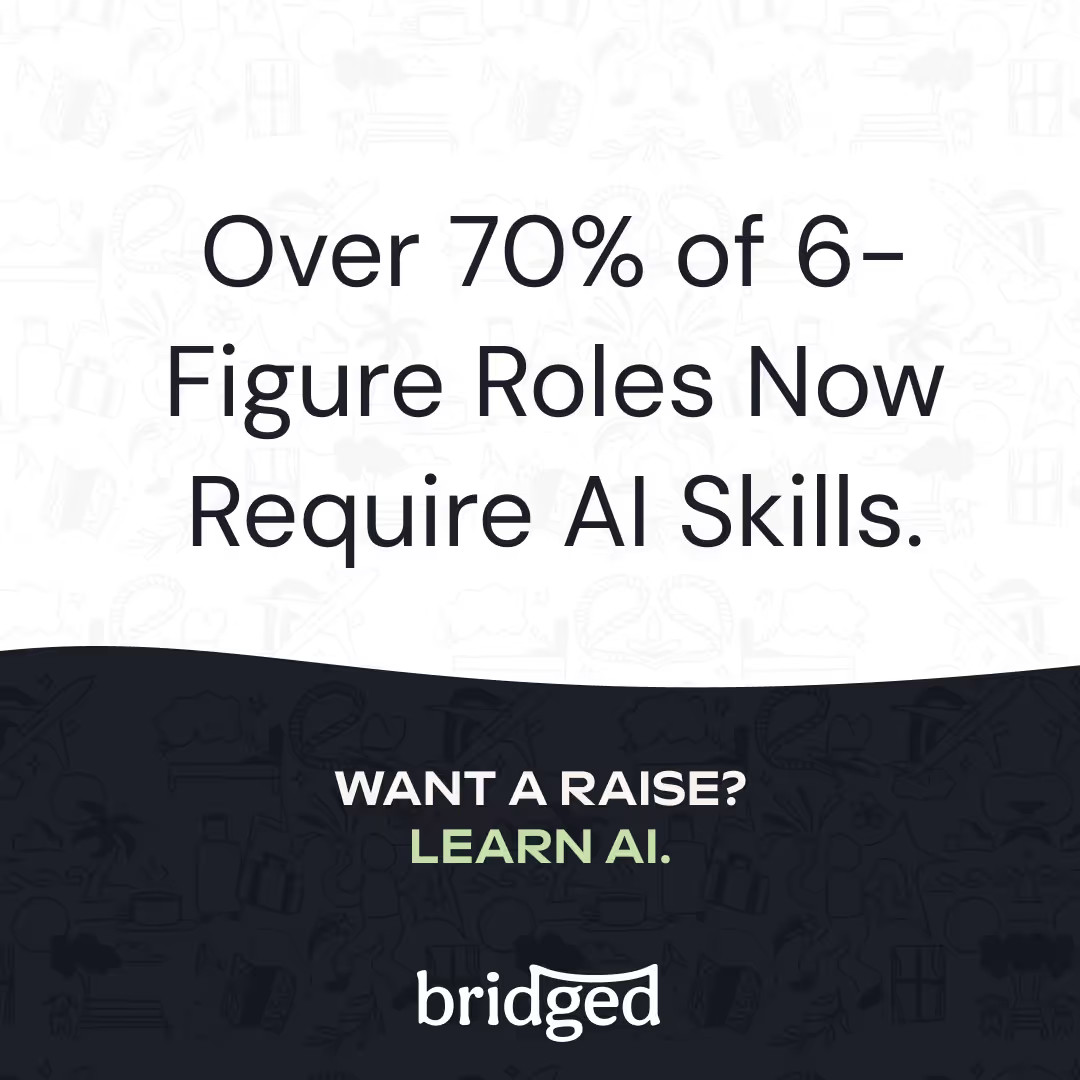
Conclusion
Final Take: Is Anthropic the Right Fit for You?
Breaking into Anthropic is not just about landing a job—it’s about aligning yourself with a company that’s reshaping how humanity interacts with AI. As one of the most mission-driven organizations in tech, Anthropic holds its bar incredibly high, hiring only a handful of deeply skilled, safety-obsessed engineers, researchers, and policy experts each year. Candidates face one of the toughest interview gauntlets in the industry, with every stage designed to test not just technical brilliance but also your ability to reason about the societal impact of advanced AI systems.
For most applicants, joining Anthropic is a long-term career goal, not an immediate next step. The best path forward is to immerse yourself in AI safety research, build projects that demonstrate you can contribute meaningfully to alignment challenges, and connect with the wider AI ethics and interpretability community. Whether it takes one application or five, showing initiative, publishing your thinking, and proving you can tackle high-stakes safety problems will help you stand out.
At its core, Anthropic is more than a job—it’s a mission. If you thrive on solving hard problems, believe AI should be safe and aligned with human values, and want to work with some of the brightest minds in the field, Anthropic is worth the challenge. While the road to joining may be steep, the opportunity to shape the future of safe AI makes every step worth it.
Did you get something out of this article? Let us know at hello@getbridged.co

High-Demand Job Matcher: Find Hot Careers

Top Certifications for Cloud Workspace Administrators



.png)


